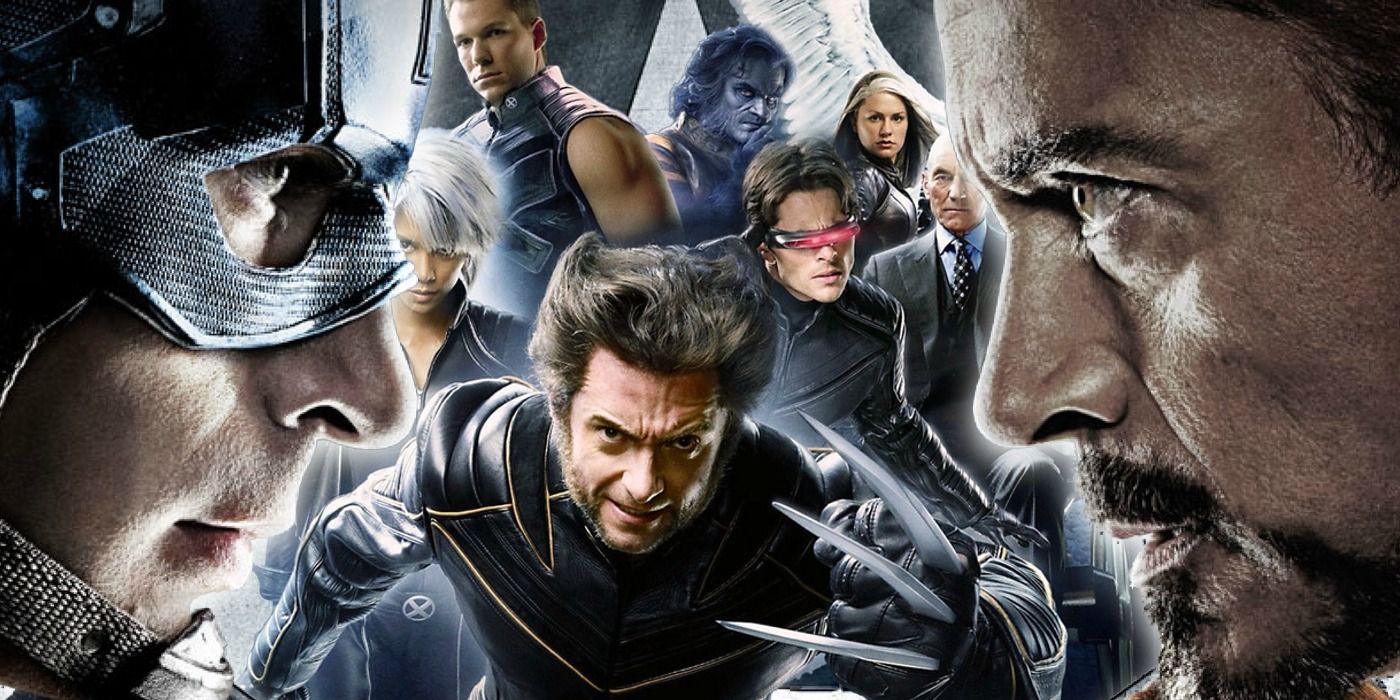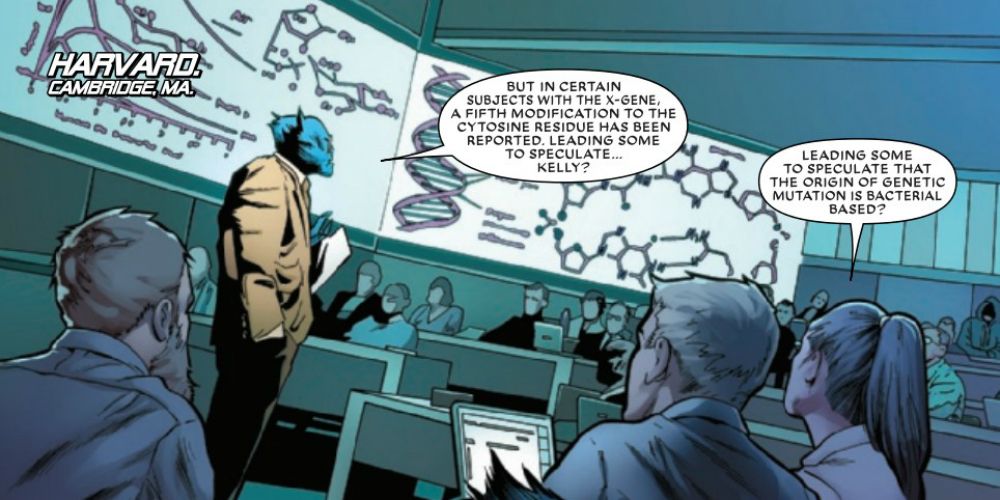Warning: SPOILERS for Astonishing X-Men #13
In a blink-and-you'll-miss-it scene, this week's Astonishing X-Men #13 subtly rewrites the history of Marvel's mutant race. It also sets a comic book precedent for a smart way Marvel Studios could add the X-Men into the Marvel Cinematic Universe.
Tired of having to create lengthy origin stories for every character, in 1963 Stan Lee came up with the idea of mutants; men and women whose genes were slightly different to baseline humans, and who gained tremendous super-powers as a result. As the years passed, readers learned that these genetic mutations were the result of experimentation on ancient humans by the race known as the Celestials.
The Celestials saw the evolutionary potential of humanity, and their experiments were designed to unlock that potential.
Related: HAVOK To Finally Lead Marvel's New X-Men
Astonishing X-Men #13 subtle rewrites the origin story of the mutant race. The comic sees Havok attempting to assemble his own team of X-Men, and he heads to Harvard to recruit the Beast, who now works as a lecturer. There's a brief scene set in Beast's lecture, where he's discussing the origin of genetic mutation.
"That's right," Beast responds approvingly, and begins to talk about "phages" before becoming distracted when he spots Havok in his class. Now, it's important to place this quote in context; Marvel is usually quite wary about introducing pseudo-science to explain away their superheroes. In fact, this is literally the first hint readers have had as to just how the mutant race was created in the Marvel Universe. It seems the Celestials may have introduced a bacterial phage into the human ecosystem, one that gradually rewrote human DNA and introduced the X-gene.
This brief scene could actually be quite important, as it hints at another way Marvel Studios could add mutants into the mix. Regulators recently approved Disney's proposed purchase of the bulk of Fox's film and TV empire, and Fox shareholders are set to vote later this month. Should the deal be approved by shareholders, one major impact is that the X-Men and the Fantastic Four will join the MCU. But that faces Marvel Studios with a difficult question; how do they integrate such a massive concept into the shared cinematic universe they've been building for the last decade?
Beast's lecture may set a precedent. In the comics, it seems the Celestials introduced a bacterial phage to trigger mutation among humans. The MCU could easily use that as a plot-point; although the Celestials are believed extinct in the MCU after the death of Ego in Guardians of the Galaxy Vol. 2, it could instead be revealed that they've simply retreated from the rest of the cosmos. The Celestials' return could involve the triggering of the bacterial phage, leading to the introduction of mutants.
Whether Marvel Studios choose to pick up on this idea or not, it's a fascinating new detail in the story of Marvel's mutant race. It will be interesting to see whether or not Marvel continue to develop this theme.
More: Why the Disney/Fox Merger Was Approved So Fast
Astonishing X-Men #13 is on sale now from Marvel Comics.



